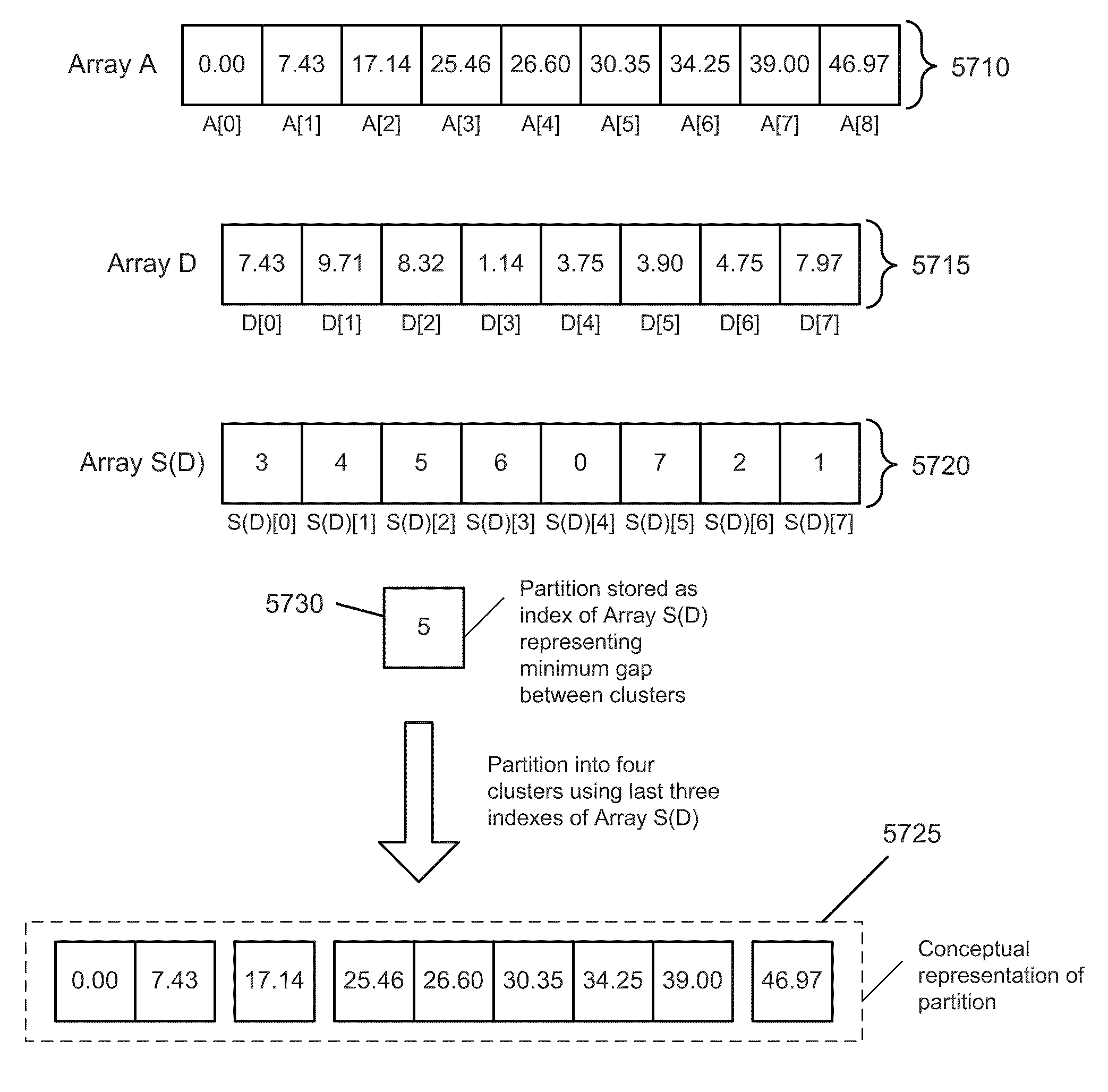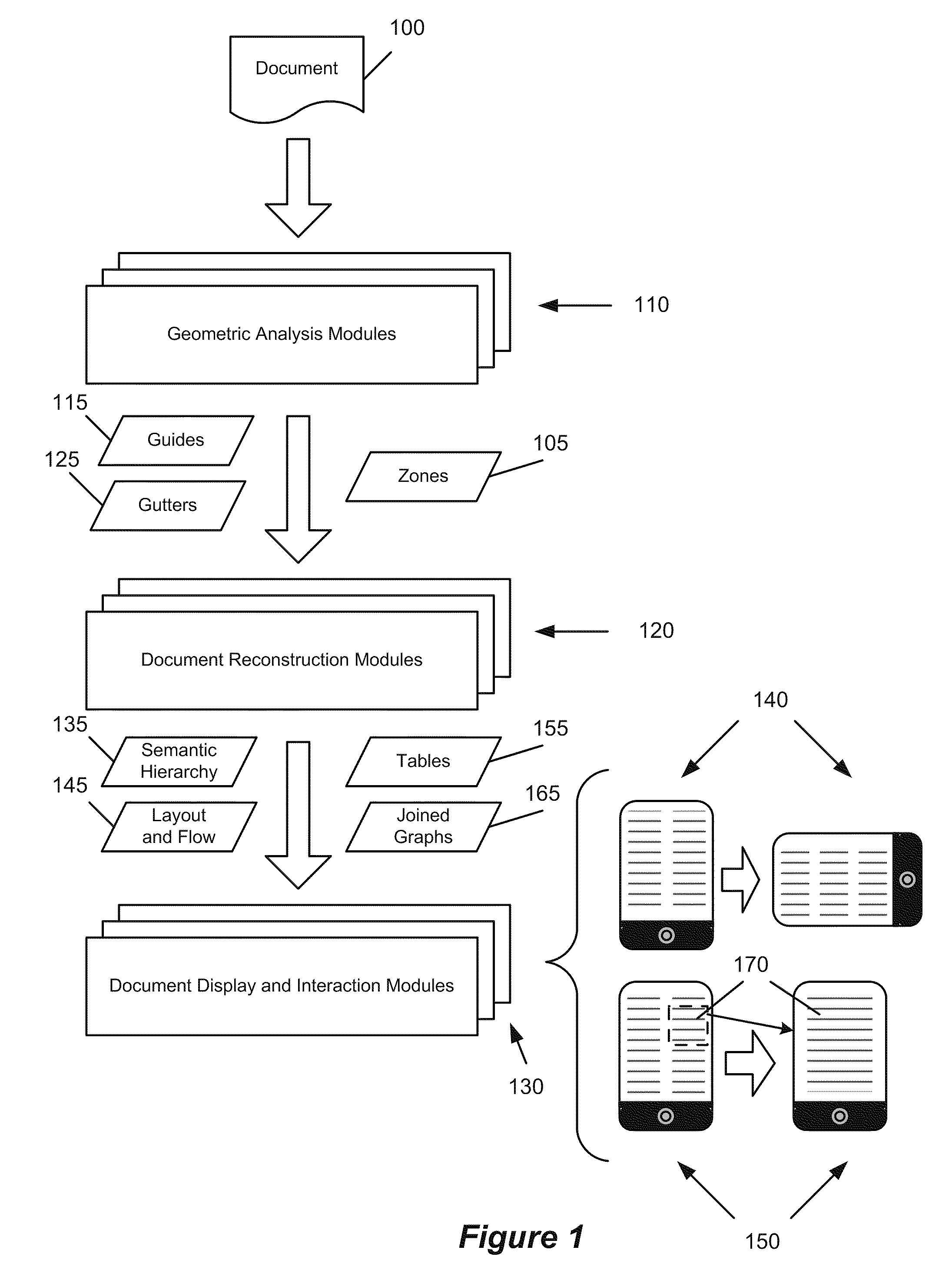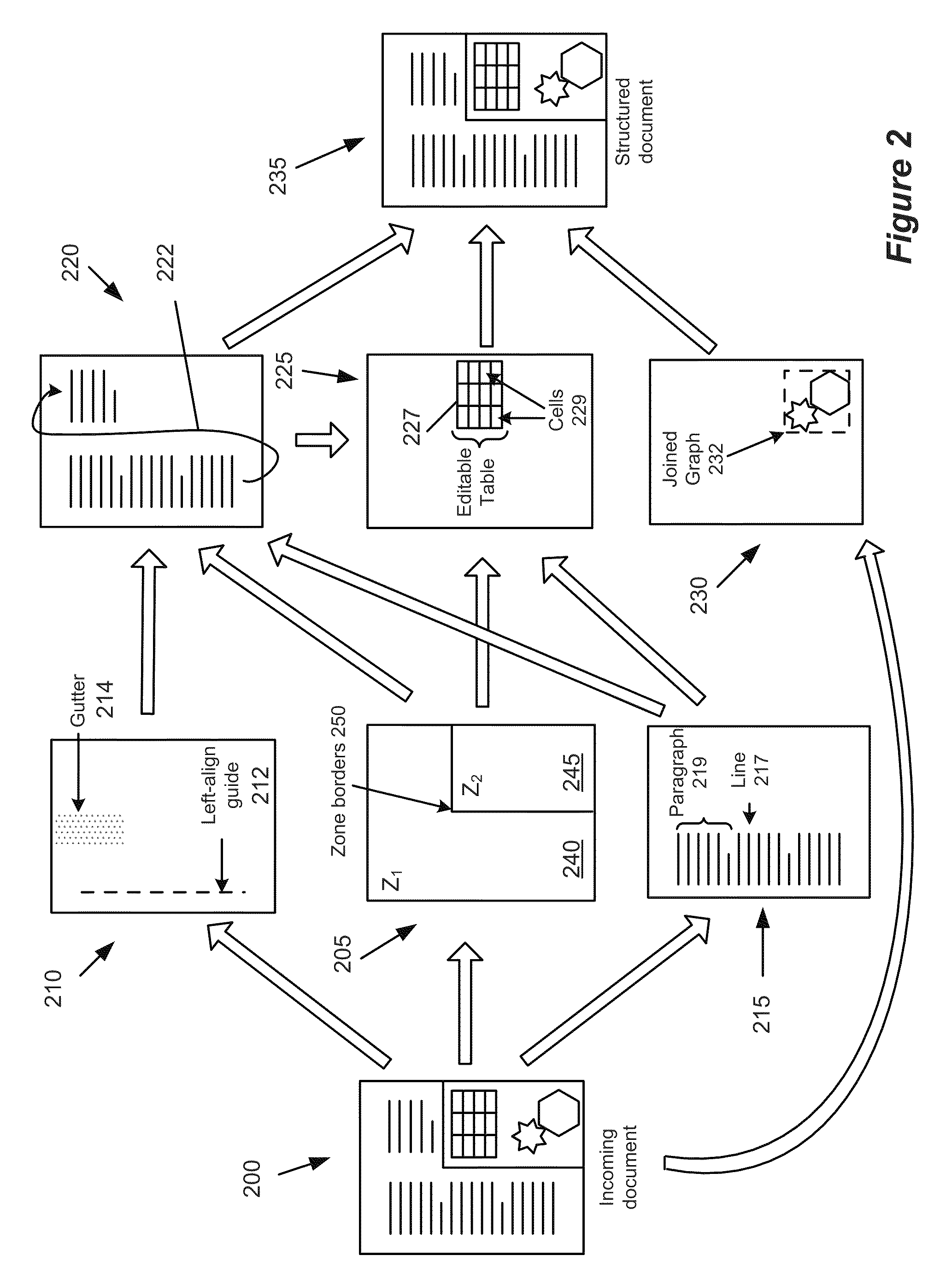Methods for efficient cluster analysis
a cluster analysis and cluster analysis technology, applied in the field of cluster analysis, can solve the problems of inability to know the intended structure of the document, inability to perform document reconstruction, and inability to perform geometric analysis, etc., and achieve the effect of improving the efficiency of the geometric analysis and document reconstruction process
- Summary
- Abstract
- Description
- Claims
- Application Information
AI Technical Summary
Benefits of technology
Problems solved by technology
Method used
Image
Examples
Embodiment Construction
[0079]In the following description, numerous details are set forth for purpose of explanation. However, one of ordinary skill in the art will realize that the invention may be practiced without the use of these specific details. For instance, in some cases, the techniques described below are described as taking place in a specific order. However, in some embodiments, the techniques are performed in an order different from that described. Furthermore, while the techniques are described for languages that are read left-to-right (e.g., English), one of ordinary skill will recognize that the techniques are easily adapted for right-to-left languages.
I. Overview
[0080]Some embodiments of the invention provide novel methods for defining a structured document from an unstructured document. In some embodiments, an unstructured document is a document defined to include only primitive elements such as shapes (e.g., vector graphics), images (e.g., bitmaps), and glyphs. In some embodiments, a gly...
PUM
 Login to View More
Login to View More Abstract
Description
Claims
Application Information
 Login to View More
Login to View More - R&D
- Intellectual Property
- Life Sciences
- Materials
- Tech Scout
- Unparalleled Data Quality
- Higher Quality Content
- 60% Fewer Hallucinations
Browse by: Latest US Patents, China's latest patents, Technical Efficacy Thesaurus, Application Domain, Technology Topic, Popular Technical Reports.
© 2025 PatSnap. All rights reserved.Legal|Privacy policy|Modern Slavery Act Transparency Statement|Sitemap|About US| Contact US: help@patsnap.com



